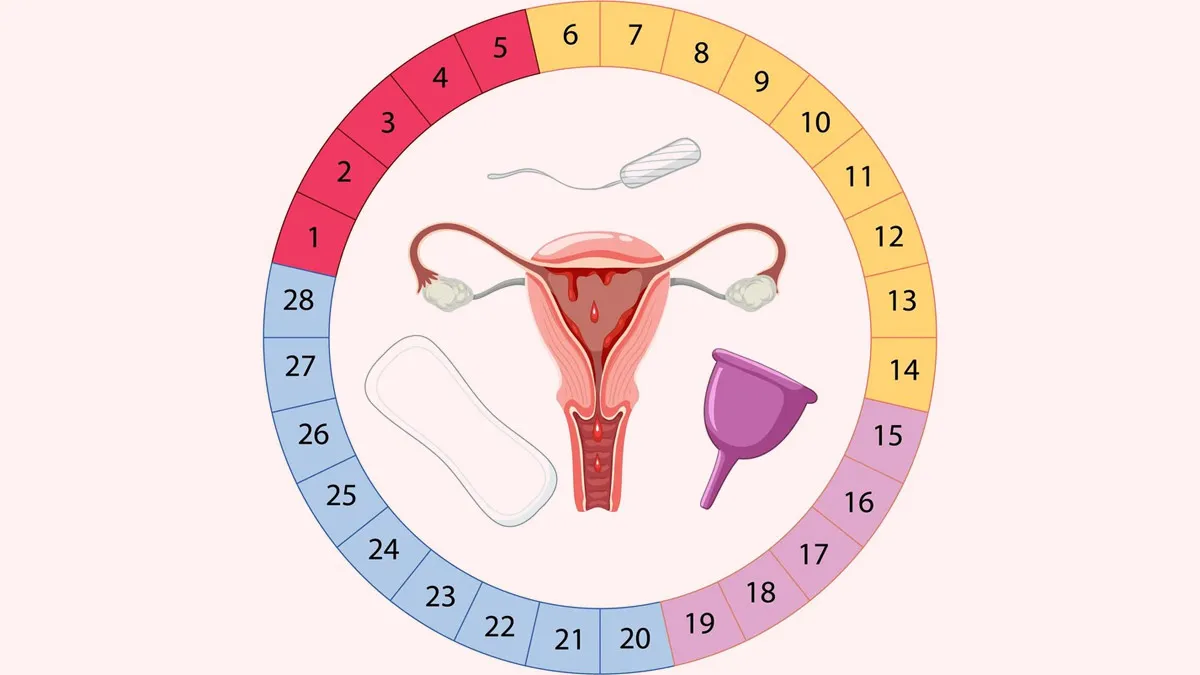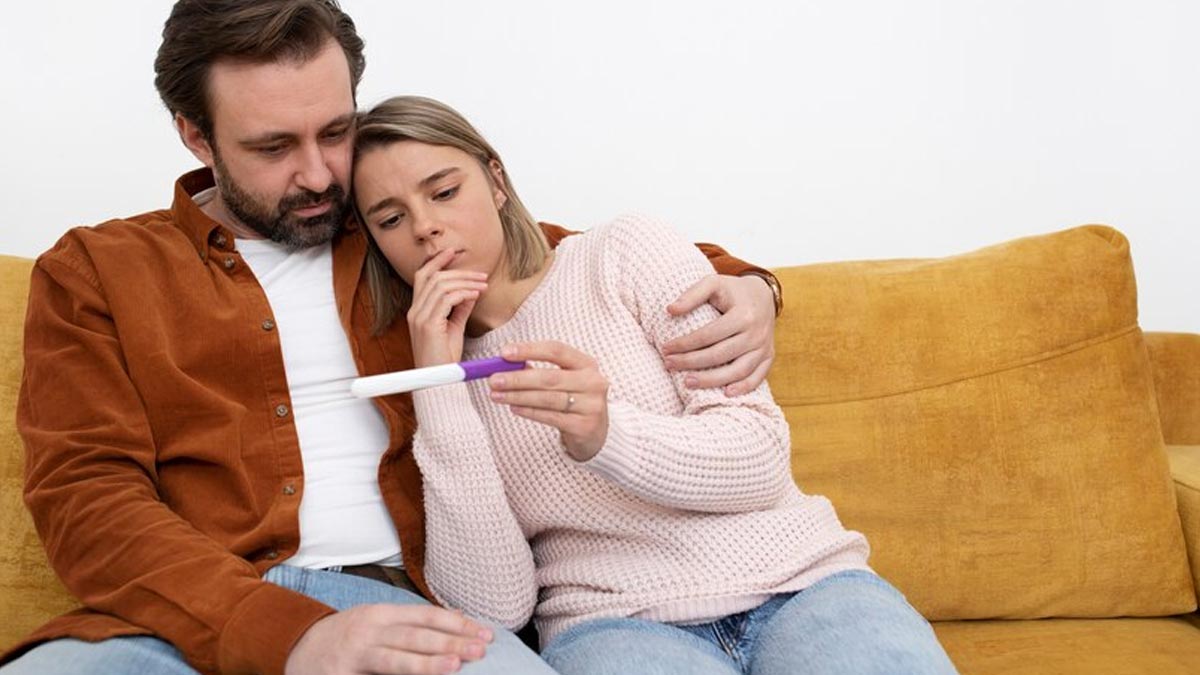
When couples plan a pregnancy, one of the most common questions they ask is “If we have sex on ovulation day, does that guarantee pregnancy?” The internet is flooded with advice, trackers, and “perfect timing” calculators, which often lead to more confusion than clarity. The truth is, while ovulation plays a crucial role in conception, the timing isn’t as exact as it may seem.
Table of Content:-
To understand this better, we spoke with Dr Neha Khandelwal, Director of the Department of Obstetrics and Gynaecology, Cloudnine Group of Hospitals, New Delhi, who explained what really happens during ovulation and why focusing on the “fertile window” matters more than just one day.
The Myth of “The Perfect Ovulation Day"![]()
According to Dr Khandelwal, ovulation doesn’t occur on the same day for every woman, and it can even vary month to month. “Ovulation day is something which will differ every month for each woman and is also going to be different for different women,” she says. For women with a 28-day menstrual cycle, ovulation usually happens around day 14, counting from the first day of their period. However, the exact timing can fluctuate depending on various factors like stress, hormonal changes, or overall health.
In short, ovulation isn’t a fixed date that applies to everyone. Hormonal changes, stress, or even travel can shift it slightly. What really matters is understanding your own cycle rather than following a general rule.
ALSO READ: Is Transvaginal Ultrasound Painful During Pregnancy? What to Expect
Does Sex on Ovulation Day Guarantee Pregnancy?![]()
Simply put, no, it doesn’t guarantee pregnancy. Fertilisation depends on several factors: the health of both partners, sperm quality, the timing of intercourse, and the woman’s reproductive health. “Even if you have sex on ovulation day, pregnancy isn’t certain because ovulation timing can vary slightly, and sperm and egg survival also play a role,” explains Dr Khandelwal.
Here’s what really happens:
- The egg survives 12–24 hours after ovulation.
- Sperm can live for up to 5 days inside the female body.
- This means having sex a few days before and after ovulation gives the sperm a better chance to meet the egg at the right time.
How to Calculate Ovulation Day![]()
Dr Khandelwal explains that understanding your cycle length helps in identifying your most fertile days. “For women who have a 28-day cycle, ovulation usually happens on day 14. For those with a 34-day cycle, we subtract 14 from the total length. so ovulation is likely around day 20,” she explains.
Here’s a simple way to calculate it:
Cycle length – 14 = Approximate ovulation day
For example:
- For a 28-day cycle: Fertile period is roughly days 9–16
- For a 30-day cycle: Around days 11–18
- For a 34-day cycle: Around days 17–24
Dr Khandelwal adds, “Cycle length minus 14 gives a rough idea of ovulation day. So, if your cycle is 34 days long, day 20 would likely be your ovulation day.” But the takeaway? Even if you pinpoint the day, that doesn’t mean conception is guaranteed.
The “Fertile Window” Matters More Than One Day
Dr Khandelwal emphasises that trying only on the ovulation day can cause unnecessary stress and reduce your chances of conception. “It is better to follow the fertile period rather than the single ovulation day formula when you’re trying for a pregnancy,” she advises.
For a 28-day cycle, she suggests considering days 9 to 16 as the fertile period. Couples can plan intercourse on alternate days during this week or at least 2–3 times to maximise the chances of conception.
In short:
- Focus on a 6–8 day window rather than just one day.
- Have sex on alternate days during this period.
- Stay relaxed, and stress can impact fertility hormones.
ALSO READ: Does Sex Position Affect Pregnancy Chances? We Asked an Expert
Why Ovulation Timing Isn’t Always Predictable![]()
Several factors can affect ovulation, including:
- Stress and anxiety
- Changes in diet or exercise
- Hormonal imbalance
- Sleep disturbances
Underlying medical conditions like PCOS or thyroid issues
That’s why Dr Khandelwal advises tracking cycles over a few months or consulting a doctor for irregular patterns. “It’s very important for every woman to know her average cycle length so she can calculate her most likely ovulation day and fertile week,” she adds.
A study published in The New England Journal of Medicine found that the likelihood of conceiving peaks when intercourse occurs one to two days before ovulation. The study concluded that while having sex on the exact day of ovulation helps, it’s not a guarantee. What matters most is regular intercourse during the fertile window. This research supports what fertility specialists like Dr Khandelwal emphasise: timing matters, but not the clockwork kind. It’s about a smart window, not a single date.
The Healthy Mindset for Couples Trying to Conceive![]()
Fertility is as much emotional as it is physical. Dr Khandelwal highlights the importance of realistic expectations. “It’s better to follow the fertile-week approach rather than stressing over the exact ovulation day. Couples should know their average cycle length and plan accordingly,” she says.
Trying for a baby can be a journey of a few months for some, or longer for others. Staying consistent and not overly anxious makes a real difference. If conception doesn’t happen after a year of regular unprotected intercourse (six months if the woman is over 35), it’s a good idea to seek medical guidance.
ALSO READ: How Long After Pregnancy Does The Breasts Hurt? Expert Shares Management Tips
Conclusion
Sex on ovulation day doesn’t guarantee pregnancy, as it simply increases the possibility, just like other days around it. What truly counts is understanding your cycle, maintaining healthy lifestyle habits, and staying patient. As Dr Neha Khandelwal points out, focusing on the fertile week, rather than one specific day, gives couples a better chance of success without unnecessary pressure.
Also watch this video
How we keep this article up to date:
We work with experts and keep a close eye on the latest in health and wellness. Whenever there is a new research or helpful information, we update our articles with accurate and useful advice.
Current Version
Nov 09, 2025 15:02 IST
Published By : Chanchal Sengar





